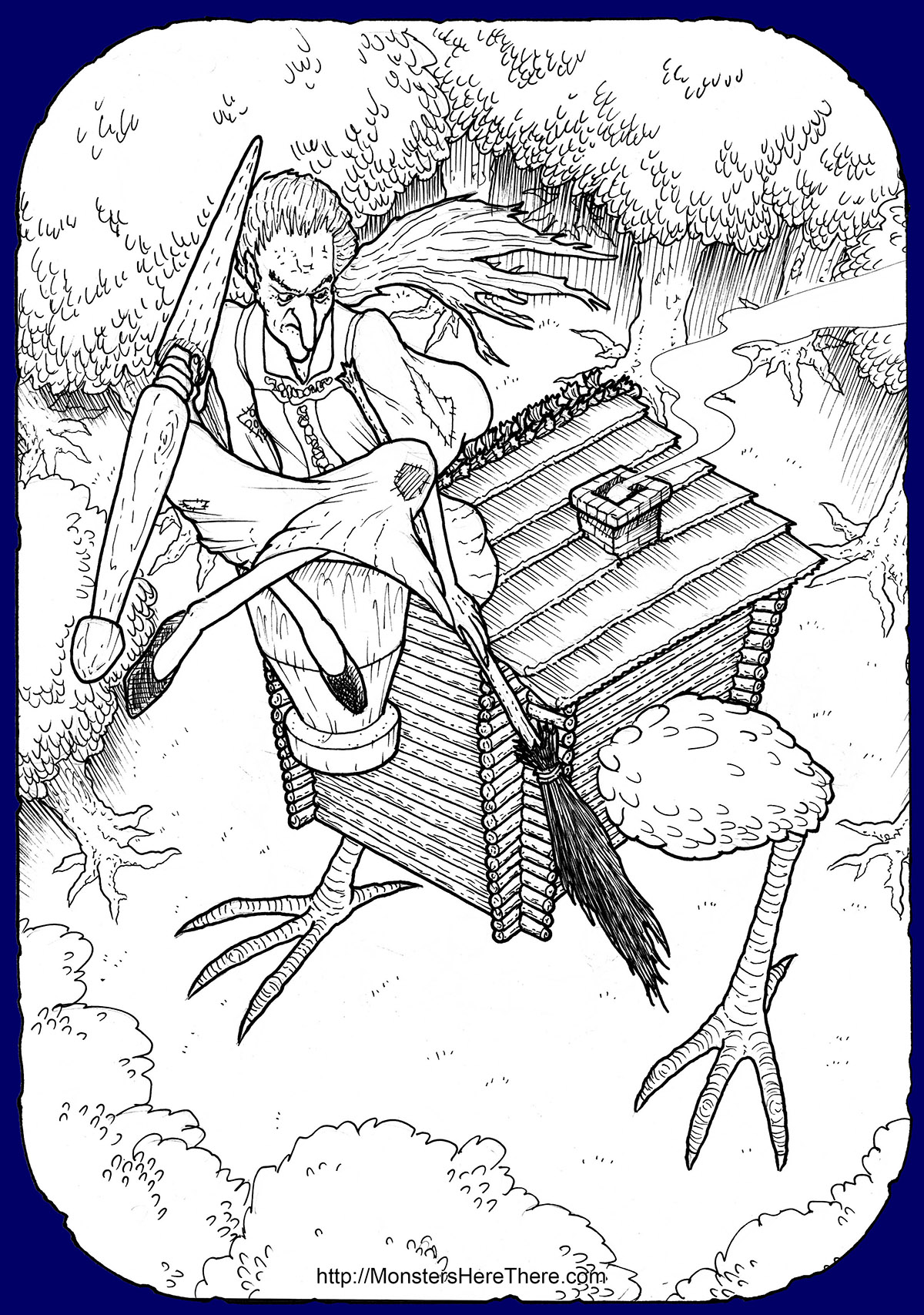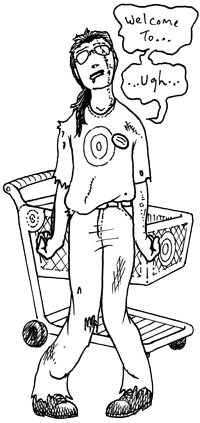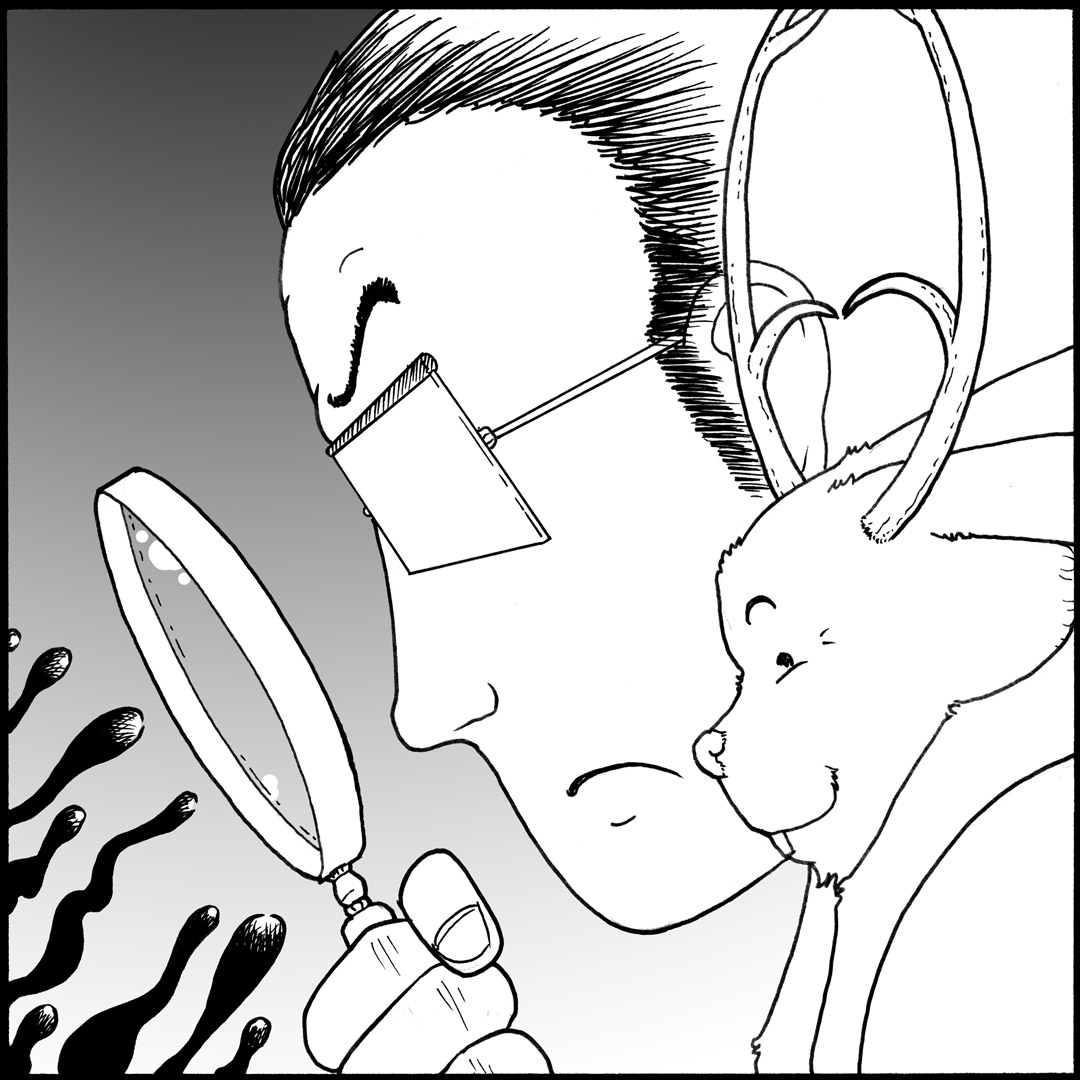| Area(s) Reported: Europe: Russia
Date(s) Reported: Timeless
In Russia, stories are told of Baba-Yaga (literally “Grandma Witch”), an old woman said to have power over night and day, and all plants and animals of the forests. Sometimes this name is used for a single being, and sometimes as a descriptor for a type of monster in the stories. In all cases, Baba-Yaga is tall, skinny as a skeleton, and has a hunger for human flesh. Baba-Yaga is a favorite villain in Russian folktales, and her situation and abilities vary from story to story. Sometimes, for example, she roams the dark forests of Russia in a chicken-legged house; in other tales she lives in a mansion with a fence made up of the bones of those she has eaten, topped with their skulls. Baba-Yaga is said to fl y low through the dark woods sitting on a magic mortar, steering with her pestle, and using a broom to cover up any trail she may leave; anybody she runs across on these flights is likely to be her dinner! Baba-Yaga’s chicken legged hut is said to have no obvious doors or windows ― Baba-Yaga enters through the chimney ― but the door is merely hidden, always turned away from those seeking it unless they know the proper magic phrase: “Hut, oh hut, turn your back to the woods, and face me.“ In the tales people are often tricked into visiting Baba-Yaga by those who don’t like them. The people who are tricked this way are usually of good spirit, and those who managed to escape from Baba-Yaga often were helped by animals and objects within and about Baba-Yaga’s hut that they had been kind to. A wise grandmother gave good advice to her grandchildren before they set out to meet Baba-Yaga: “Be kind and good to every one; do not speak ill words to any one; do not despise helping the weakest, and always hope that for you, too, there will be the needed help.” Tricking Baba-Yaga 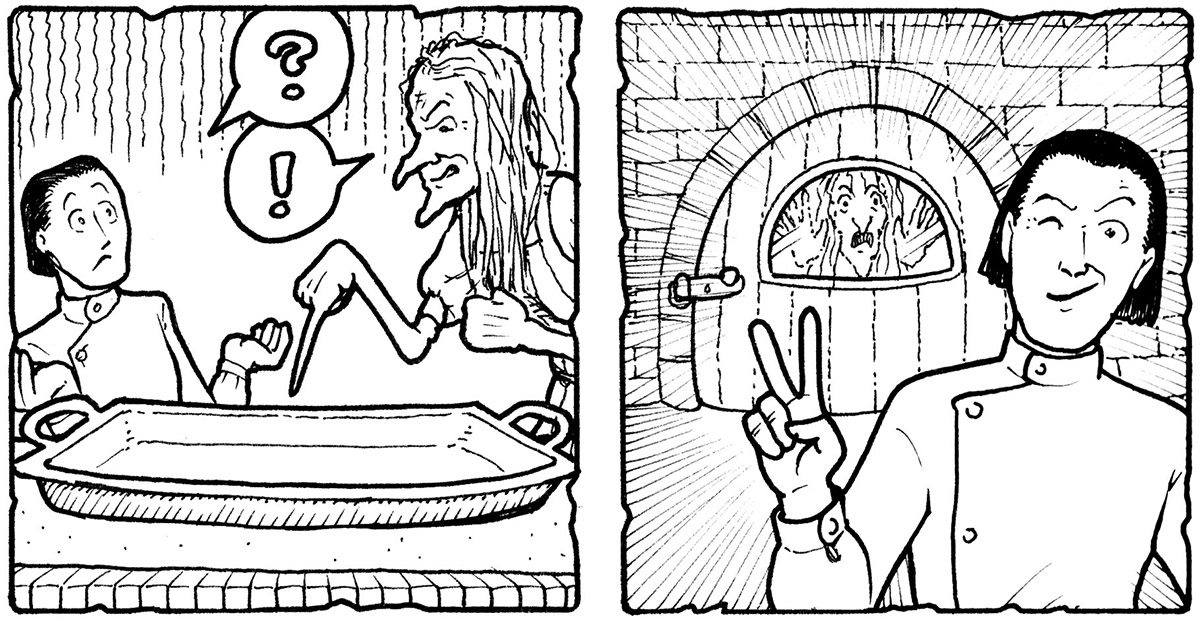
Baba-Yaga likes to trick her victims into helping her prepare their doom. If Baba-Yaga asks you to do something, don’t do it... make her think you are or, better yet, turn the tables on her. For example, to avoid being put in Baba-Yaga’s oven, one boy claimed to not know how to lay on a pan. When the impatient Baba-Yaga laid down on the pan to show him, he popped
her into the oven instead! In another tale, Baba-Yaga tricked a young man into tying three knots in a strand of her hair and blowing on it... which turned him into stone! When another young man showed up, his seeming inability to follow instructions tricked Baba-Yaga into tying the knots and blowing on them herself. Even as stone, she could speak; and so the young man got the cure for his friend by threatening to grind her up in her own mortar. Some tales have a group of Baba-Yagas living together (usually three sisters), while other tales tell of a single Baba-Yaga with multiple daughters, all very beautiful... and dangerous, for all of these relatives are also man-eating monsters. Typically, these extra villains are quickly dispatched by the heroes of the tales; but Baba-Yaga herself is not so easy to get rid of. In tale after tale, Baba-Yaga is the agitator. She wins in some stories, but loses in many more; and she often dies at the end of the tale, only to be fully restored again come the next tale. Perhaps this is because a hero’s greatness can only be seen in comparison to a villain’s wickedness; and there is no one more wicked in Russia than the man-eating terror, Baba-Yaga! 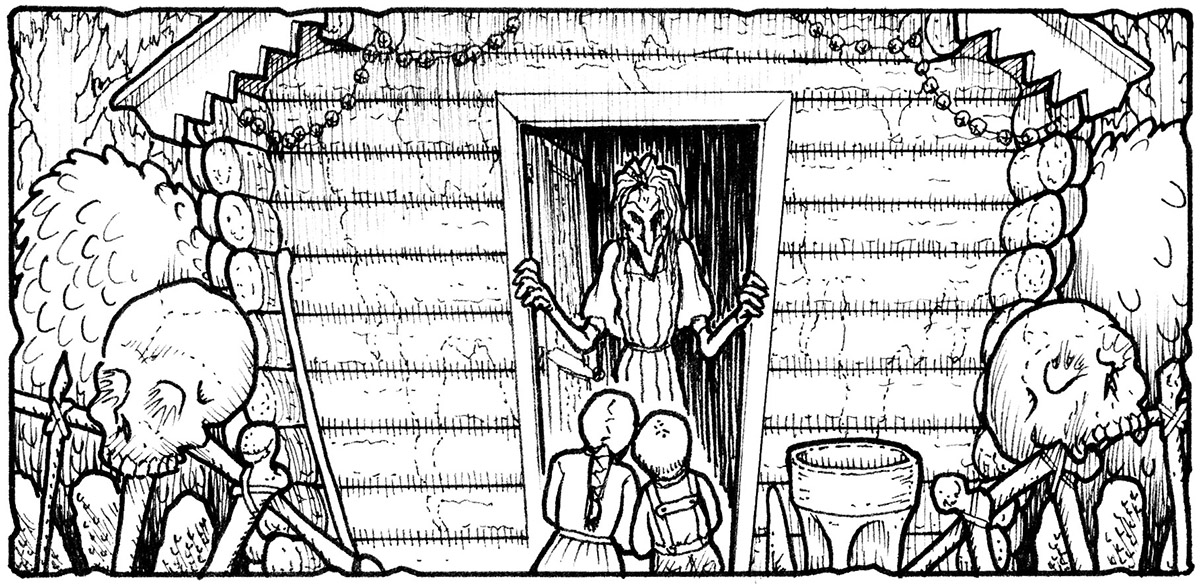
| |
